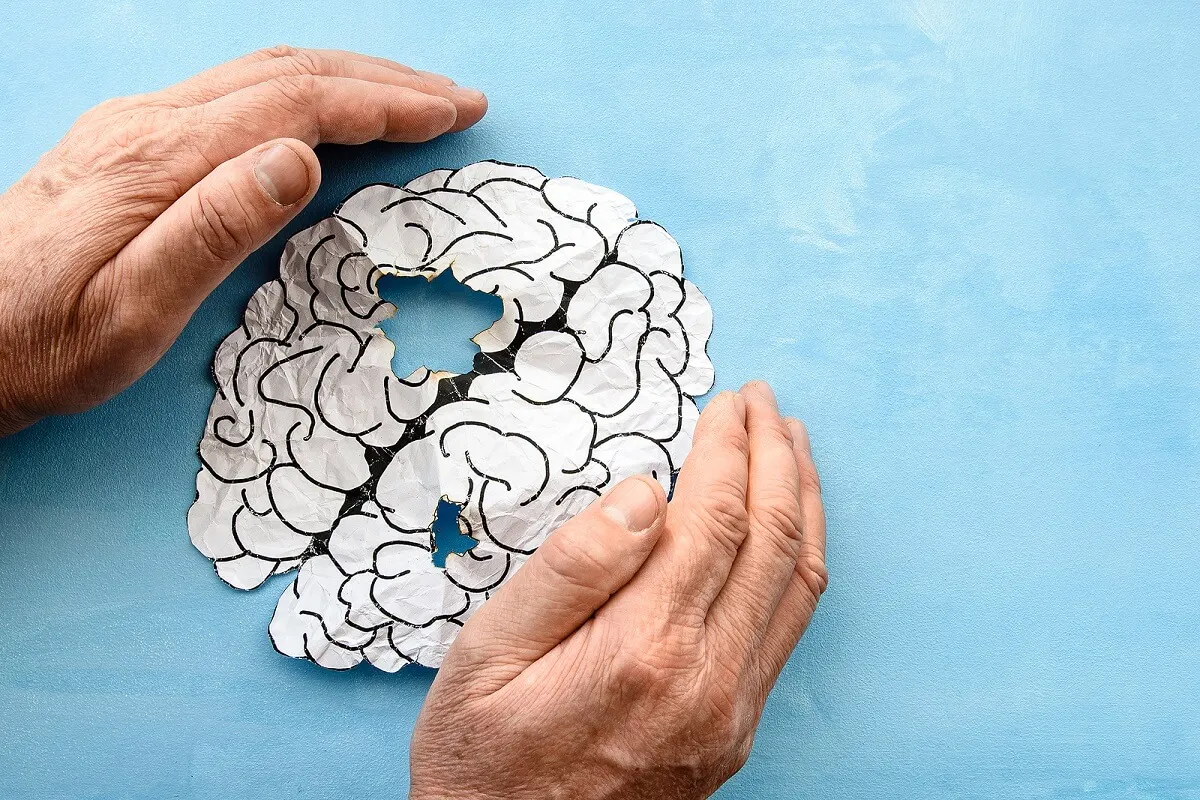Bacopa, a Plant that Can Benefit Your Memory


Reviewed and approved by the pharmacist Franciele Rohor de Souza
Bacopa (Bacopa monnieri) is a plant that’s well known in traditional Ayurvedic medicine. It belongs to the Scrophulariaceae family, the same family as gratiola and mullein. It’s also known by other names such as “neer brahmi”, “water hyssop” and “herb of grace”.
It’s an aquatic plant that grows in humid tropical environments in countries such as Pakistan, India, Vietnam, Taiwan, and southern China. It’s also found throughout various parts of North America, Central America, and tropical Africa.
Although it’s used as a garden plant, due to its showy flowers, its popularity is due to its medicinal applications. In particular, evidence suggests that it has anti-inflammatory, neuroprotective, analgesic, sedative and anti-epileptic potential. Interested in learning more about it? Below we’ll take a look at its main benefits.
Main bioactive compounds of bacopa
Before detailing the uses and benefits of bacopa, it’s worth highlighting its main bioactive compounds. These explain its pharmacological potential and multiple properties.
According to information reported in the journal Frontiers in Nutrition, its main constituents include the following:
- Saponins
- Alcohols
- Steroids
- Alkaloids
- Sugars
- Amino acids
- Flavonoids
- Cucurbitacins
- Glycosides, sterol glycosides, and phenylethanoid glycosides
The main active compound is saponins, which, in turn, comprise bacosides, bacopasides, bacosaponins, betulinic acid, and monnierin. They’re associated with neural and brain health benefits.
Read also: What Are Huauzontles and What Are Their Benefits?
Uses and benefits of bacopa, the memory-boosting plant
In Ayurvedic medicine, bacopa is valued for its potential to stimulate memory and reduce the risk of neurodegenerative diseases. In addition, it has other therapeutic attributes that are currently being evaluated in various clinical and pharmacological trials.
Let’s see what science says so far.
Helps stimulate brain function
It’s no coincidence that bacopa and derived supplements are widely used as brain stimulants. Animal and human research suggests that it improves memory, attention, and learning rate.
A study shared via Psychopharmacology reported that healthy adults who took 300 mg of Bacopa monnieri daily for 12 weeks had improved memory, ability to process visual information, and learning.
Research shared in Evidence-Based Complementary and Alternative Medicine supports these properties. Similarly, adults taking 300 mg to 600 mg of Bacopa monnieri extract per day reported improvements in attention, cognitive processing, and working memory.
In animal studies, the plant also showed potential as an adjuvant to improve spatial learning and the ability to retain information. More research is needed to corroborate these effects.

It has neuroprotective potential
In addition to the above, bacopa stands out for its neuroprotective effect. This is linked to the prevention of neurodegenerative disorders, such as Alzheimer’s and other forms of dementia. In this regard, a study in Drug Target Insights found that bacosides have therapeutic potential in Alzheimer’s disease.
These antioxidant-acting substances protect the brain against oxidative damage and age-related cognitive decline. The hypothesis suggests that they have the ability to guard neurons against beta-amyloid-induced toxicity.
However, a review shared in the Interactive Journal of Medical Research casts doubt on these effects. The researchers concluded that the evidence obtained is of “low certainty”, as they didn’t observe relevant effects of the plant when compared to a placebo and donepezil (a drug used to enhance memory).
Exhibits anti-epileptic potential
A review in the journal Fitoterapia details that bacopa is used as a tonic to increase mental performance. Due to its antioxidant qualities, it would be neuroprotective. Therefore, it’s also beneficial for disorders such as epilepsy.
This neuronal disease is characterized by the presence of epileptic seizures, learning disorders, and memory problems. So far, only studies in animals have been able to determine this potential.
The content of bacosides and triterpenoids is linked to its ability to improve nerve impulse transmission. It has also been observed that it may protect cognition.
Human studies are required to verify these effects.
Helps prevent anxiety, stress, and depression
The adaptogenic effect of bacopa was evaluated in a study carried out on rats, and shared in Pharmacology, Biochemistry and Behavior. It concluded that B. monnieri extract has “potent” adaptogenic activity. Thus, it could improve the body’s response to stress.
A small study in humans supports these properties. In it, the administration of extracts of the plant was linked to a decrease in cortisol levels, a hormone that causes the symptoms of stress and anxiety.
A randomized controlled trial reported in The Journal of Alternative and Complementary Medicine found that the plant improved cognitive performance and reduced anxiety and depression in older adults with incipient degenerative disorders.
Other possible uses for bacopa
Bacopa’s high antioxidant content is often linked to other interesting benefits. And, while larger, more comprehensive studies are needed, some preliminary research has promising findings, such as the following:
- In a clinical trial shared by Advances in Mind-Body Medicine, 85% of children with ADHD treated for 6 months with 225 mg daily of Bacopa monnieri extract had improved impulse control and inattention.
- Test tube and animal studies suggest that Bacopa monnieri has the potential to inhibit the growth of malignant cells. However, more studies are needed to prove these effects in humans.
- Bacopa flavonoids and saponosides have antioxidant and vasodilatory qualities. In animal studies, the plant exhibited vasodilatory potential, which in turn was linked to the prevention of coronary risk. Robust human studies are needed.

Bacopa risks and side effects
Bacopa is generally safe for most healthy adults. Even so, it can lead to adverse reactions such as nausea, stomach cramps, and diarrhea.
Likewise, its use is contraindicated in the following cases:
- Stomach ulcer
- Renal obstruction
- Pregnancy and lactation
- Thyroid disorders
- Biliary and intestinal obstruction
- Patients with bradycardia (low heart rate)
Like other plants, its simultaneous consumption with medications can lead to interactions. Specifically, it has been observed to interact with amitriptyline, which is a drug used to relieve pain.
To prevent these reactions, it’s advisable to consult a doctor before taking supplements.
Dosage and presentations
In online stores, pharmacies, and herbalists, bacopa is distributed as tablets, extracts, in combination with other medicinal plants, and as a dried plant for infusion. However, it isn’t usually easy to find it on the market.
In any case, all forms of consumption should be carried out with caution, respecting the doses suggested by the manufacturer. Often, between 300 mg and 450 mg per day are suggested, but this may vary depending on the presentation.
You may be interested in: Natural Foods That Fight Memory Loss
What to remember about bacopa?
In Ayurvedic medicine, bacopa is valued for its potential to stimulate memory, reduce stress levels, and protect cognitive health. Some research has evaluated these effects and made promising findings. Still, more robust and conclusive studies are needed.
It shouldn’t be a first-line treatment for illnesses. Its use is merely complementary and, as far as possible, should be supervised by your doctor. The plant is scarce and difficult to find, which is also a disadvantage.
All cited sources were thoroughly reviewed by our team to ensure their quality, reliability, currency, and validity. The bibliography of this article was considered reliable and of academic or scientific accuracy.
- Russo A, Borrelli F. Bacopa monniera, a reputed nootropic plant: an overview. Phytomedicine. 2005 Apr;12(4):305-17. doi: 10.1016/j.phymed.2003.12.008. PMID: 15898709.
- Fatima, U., Roy, S., Ahmad, S., Ali, S., Elkady, W. M., Khan, I., Alsaffar, R. M., Adnan, M., Islam, A., & Hassan, Md. I. (2022). Pharmacological attributes of Bacopa monnieri extract: Current updates and clinical manifestation. In Frontiers in Nutrition (Vol. 9). Frontiers Media SA. https://doi.org/10.3389/fnut.2022.972379
- Stough C, Lloyd J, Clarke J, Downey LA, Hutchison CW, Rodgers T, Nathan PJ. The chronic effects of an extract of Bacopa monniera (Brahmi) on cognitive function in healthy human subjects. Psychopharmacology (Berl). 2001 Aug;156(4):481-4. doi: 10.1007/s002130100815. Erratum in: Psychopharmacology (Berl). 2015 Jul;232(13):2427. Dosage error in article text. PMID: 11498727.
- Peth-Nui T, Wattanathorn J, Muchimapura S, Tong-Un T, Piyavhatkul N, Rangseekajee P, Ingkaninan K, Vittaya-Areekul S. Effects of 12-Week Bacopa monnieri Consumption on Attention, Cognitive Processing, Working Memory, and Functions of Both Cholinergic and Monoaminergic Systems in Healthy Elderly Volunteers. Evid Based Complement Alternat Med. 2012;2012:606424. doi: 10.1155/2012/606424. Epub 2012 Dec 18. PMID: 23320031; PMCID: PMC3537209.
- Vollala VR, Upadhya S, Nayak S. Enhancement of basolateral amygdaloid neuronal dendritic arborization following Bacopa monniera extract treatment in adult rats. Clinics (Sao Paulo). 2011;66(4):663-71. doi: 10.1590/s1807-59322011000400023. PMID: 21655763; PMCID: PMC3093798.
- Saraf MK, Prabhakar S, Anand A. Neuroprotective effect of Bacopa monniera on ischemia induced brain injury. Pharmacol Biochem Behav. 2010 Dec;97(2):192-7. doi: 10.1016/j.pbb.2010.07.017. Epub 2010 Aug 1. PMID: 20678517.
- Abdul Manap AS, Vijayabalan S, Madhavan P, Chia YY, Arya A, Wong EH, Rizwan F, Bindal U, Koshy S. Bacopa monnieri, a Neuroprotective Lead in Alzheimer Disease: A Review on Its Properties, Mechanisms of Action, and Preclinical and Clinical Studies. Drug Target Insights. 2019 Jul 31;13:1177392819866412. doi: 10.1177/1177392819866412. PMID: 31391778; PMCID: PMC6669844.
- Basheer A, Agarwal A, Mishra B, Gupta A, Padma Srivastava MV, Kirubakaran R, Vishnu V. Use of Bacopa monnieri in the Treatment of Dementia Due to Alzheimer Disease: Systematic Review of Randomized Controlled Trials. Interact J Med Res. 2022 Aug 1;11(2):e38542. doi: 10.2196/38542. PMID: 35612544; PMCID: PMC9379783.
- Komali E, Venkataramaiah C, Rajendra W. Antiepileptic potential of Bacopa monnieri in the rat brain during PTZ-induced epilepsy with reference to cholinergic system and ATPases. J Tradit Complement Med. 2020 Mar 4;11(2):137-143. doi: 10.1016/j.jtcme.2020.02.011. PMID: 33728274; PMCID: PMC7936099.
- Rai D, Bhatia G, Palit G, Pal R, Singh S, Singh HK. Adaptogenic effect of Bacopa monniera (Brahmi). Pharmacol Biochem Behav. 2003 Jul;75(4):823-30. doi: 10.1016/s0091-3057(03)00156-4. PMID: 12957224.
- Benson S, Downey LA, Stough C, Wetherell M, Zangara A, Scholey A. An acute, double-blind, placebo-controlled cross-over study of 320 mg and 640 mg doses of Bacopa monnieri (CDRI 08) on multitasking stress reactivity and mood. Phytother Res. 2014 Apr;28(4):551-9. doi: 10.1002/ptr.5029. Epub 2013 Jun 21. PMID: 23788517.
- Calabrese C, Gregory WL, Leo M, Kraemer D, Bone K, Oken B. Effects of a standardized Bacopa monnieri extract on cognitive performance, anxiety, and depression in the elderly: a randomized, double-blind, placebo-controlled trial. J Altern Complement Med. 2008 Jul;14(6):707-13. doi: 10.1089/acm.2008.0018. PMID: 18611150; PMCID: PMC3153866.
- Dave UP, Dingankar SR, Saxena VS, Joseph JA, Bethapudi B, Agarwal A, Kudiganti V. An open-label study to elucidate the effects of standardized Bacopa monnieri extract in the management of symptoms of attention-deficit hyperactivity disorder in children. Adv Mind Body Med. 2014 Spring;28(2):10-5. PMID: 24682000.
- Mallick MN, Akhtar MS, Najm MZ, Tamboli ET, Ahmad S, Husain SA. Evaluation of anticancer potential of Bacopa monnieri L. against MCF-7 and MDA-MB 231 cell line. J Pharm Bioallied Sci. 2015 Oct-Dec;7(4):325-8. doi: 10.4103/0975-7406.168038. PMID: 26681894; PMCID: PMC4678980.
- Kalyani MI, Lingaraju SM, Salimath BP. A pro-apoptotic 15-kDa protein from Bacopa monnieri activates caspase-3 and downregulates Bcl-2 gene expression in mouse mammary carcinoma cells. J Nat Med. 2013 Jan;67(1):123-36. doi: 10.1007/s11418-012-0661-z. Epub 2012 Apr 1. PMID: 22467255.
- Kamkaew N, Paracha TU, Ingkaninan K, Waranuch N, Chootip K. Vasodilatory Effects and Mechanisms of Action of Bacopa monnieri Active Compounds on Rat Mesenteric Arteries. Molecules. 2019 Jun 15;24(12):2243. doi: 10.3390/molecules24122243. PMID: 31208086; PMCID: PMC6630913.
- Morgan A, Stevens J. Does Bacopa monnieri improve memory performance in older persons? Results of a randomized, placebo-controlled, double-blind trial. J Altern Complement Med. 2010 Jul;16(7):753-9. doi: 10.1089/acm.2009.0342. PMID: 20590480.
- Khurshid, Fowad & Govindasamy, Jeyabalan & Khalilullah, Habibullah & Nomani, Shivli & Shahid, Mudassar & Ain, Mohammad Ruhal & Sultan, Mohammad. (2017). Effect of herb-drug interactions of Bacopa monnieri Linn. (Brahmi) formulation on the pharmacokinetics of amitriptyline in rats. Brazilian Journal of Pharmaceutical Science. 53. e17072. 10.1590/s2175-97902017000417072.
This text is provided for informational purposes only and does not replace consultation with a professional. If in doubt, consult your specialist.








